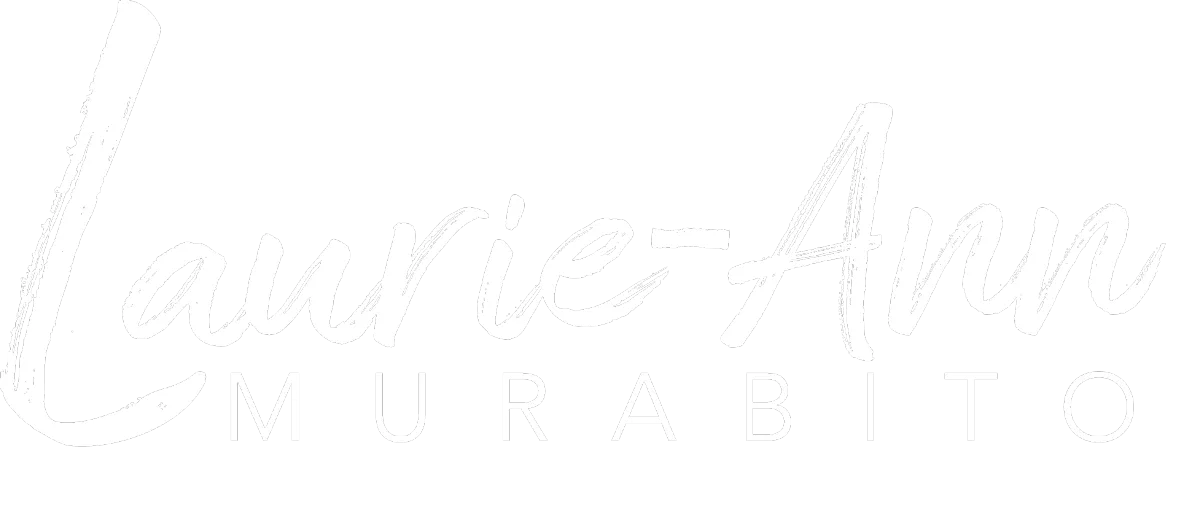Episode Transcription
SEO to Get Found on Google with Laura Jawad | #240
How to rank for keywords
Laurie-Ann Murabito [00:00:00]:
Welcome back everybody. This is gonna be a very fun episode. I mean, we are gonna be talking about something that's very techie. But before we do that, you know, I want you to learn about my guest, Laura, because she's got a very interesting background. Laura, I'm just gonna, like, fire off some questions so that everybody can finally get to know you a little bit. So you went to college and studied? Chemistry. And how far along, like, how many degrees in chemistry do you have?
Laura [00:00:29]:
Well, technically I have one degree in chemistry and I have a PhD in chemical oceanography.
Laurie-Ann Murabito [00:00:35]:
Of course. Yeah. That makes perfect sense for your other career paths. And then you ended up in personal training.
Laurie-Ann Murabito [00:00:45]:
And then which brings you to, like, right now you do help people. You're an SEO specialist. Yes. Yes. So before we hit record, we were talking about how it's very interesting how we go to school and it's like, right, that's our degree. Now you have to get a job in that field. Tell us more about that because that must have been really hard for you to make it.
Laura [00:01:14]:
Yeah. So absolutely. Like, when you go to school for a terminal degree of any sort, I imagine it's the same that there's so much pressure to stay in that field. Right? There's so much expectation that you're gonna have like, you're gonna become a professor or you're gonna become that tenured scientist. And there's almost like shame in doing anything else. And it's so interesting now. It was very, very hard to pivot out of that. Right? That was a major identity crisis for me.
Laura [00:01:42]:
And now that I feel like I'm clear like, I'm cleanly on the other side of it, it's so interesting just having a broader perspective and really taking in the breadth of what people do with their lives and the circuitous paths people take. People do so many things. But I think it's really easy to kind of have tunnel vision and get stuck on that one path even if it's not a path that makes you super happy because you just feel like that's the path you're on. That's where you've gotta stay.
Laurie-Ann Murabito [00:02:17]:
Right. I have a degree in exercise physiology, and, you know, I worked in healthcare in cardiology. So to me, it made perfect sense
Laurie-Ann Murabito [00:02:25]:
have this understanding of our cardiovascular system and then, you know, enter into the hospital where it was all about diseases, but which was very depressing. Mhmm. You know, doing exams on seniors and just thinking, why am I eating healthy? Why am I exercising every single day? So same thing, like when I left, it was just like, I don't know who I am. But I think that's just such an interesting conversation that more of us need to be having. And at the same time, like our diverse backgrounds makes us great speakers. I have so many stories and pathways to pull from. And the same thing with you, which I think it just makes us more interesting.
Laura [00:03:08]:
It's funny. I've never thought about that aspect of it, like, using that as an asset for speaking. That has never occurred to me.
Laurie-Ann Murabito [00:03:19]:
Well, I mean, everybody, we're gonna be talking about SEO. Yeah. And, you know, like, for you to be able to be up there in front of an audience and talking about SEO, like, let's just say to, like, a local chamber that's got lots of different business people that are in there. I mean, for you to come out and say, like, my background is in chemistry and oceanography. Like, all the science people that are in the audience who have science degrees also that probably never used their degree because they bought into a franchise, they started a different type of business that they saw needed are just gonna be like, she's like me or I'm like her. Right. Makes you more it just makes you more relatable. So sorry about that little side note.
Laurie-Ann Murabito [00:03:58]:
Yes.
Laura [00:03:59]:
No. It's super interesting.
Laurie-Ann Murabito [00:04:01]:
You know, you help people get found. And how did you come to this world?
Laura [00:04:10]:
Right. So in 2017, I hung my shingle as a personal trainer. So that is when I officially left my academic role in 2018, so I had a small overlap. But I struck out on my personal training journey in 2017, 2018 initially as an in person business, but come COVID, we brought that all online. Right? And all the advice that I found about running an online business centered around social media. So you have to be on social media, you have to be posting every day, you need to be in the DMs, all these things that were social media based. They're so temporary. They're temporary, but also I'm an introvert.
Laura [00:05:01]:
It was really hard for me to put my face on social media. I've gotten better at it over the years, but it's still not my comfort zone. Yeah. Right? And I just thought, well, I guess I'm not cut out for this. And, you know, I stuck around. And when I looked at the type of content I enjoyed creating, it really was like, the long form captions, like, the informational content and scientist backgrounds.
Laurie-Ann Murabito [00:05:30]:
Here comes that trigger again.
Laura [00:05:31]:
Yes. And so at some point, I started posting that stuff to my blog, and then I started getting traction from my website. So I started learning more about how I could use my website site as my marketing tool.
Laurie-Ann Murabito [00:05:45]:
Nice.
Laura [00:05:46]:
And, you know, there really are so many ways to market an online business. And if you're coming to it from Instagram, that's all you're gonna know. But, really, you could be marketing your website through SEO, through paid ads, through referral marketing. There's all these other ways to do it. Right? But I think that's to say I found my way to SEO a little bit by accident, but found something that resonated with me and just felt much more aligned with my personality. And so as I ran my business that way for several years, I started informally kind of advising colleagues who wanted to break their reliance on socials, and I decided to productize that in 2023.
Laurie-Ann Murabito [00:06:34]:
Good for you. I mean, I think, like, SEO is one of these evergreen topics. It's constantly changing, you know, and we're gonna touch on some of those things. But it's also so basic and so foundational. And I did take the course was called Findability, but it basically, that's what it was. It was all about SEO. And I remember going in and changing some of the URL so that it had my keywords in it. And then I broke the website, and thank goodness I had a gentleman who was managing my website, and he joked with me and said, I'm gonna take your keys away if you do that again.
Laurie-Ann Murabito [00:07:12]:
Which made me like, all right, there's gotta be a different way to do this, but what would I do? I was like, I didn't know what to do. Yeah. I didn't know how to become found. And I don't think I understood if what I was doing was working. So maybe that's something else that we can, like, touch on so that you can know that whatever your efforts are, besides waiting for people to show up. Mhmm. And one of my clients, I remember she has a podcast on grief. And her SEO is getting better from her podcast, but also from her website.
Laurie-Ann Murabito [00:07:44]:
And she's asking people like, how did you find me? And they typed in, she said the most common word is crying. Sadness. Is yeah. I yeah. Yeah. It's so interesting, but I love how she's asking. Yeah. How did you find me? So for everybody that's out there, just give them, like, the SEO 101 is.
Laura [00:08:08]:
So SEO is the art of getting your website served up at the top of search results for relevant searches. Right? When someone types something into the Google search bar related to the services or solutions you provide, you want your website to be served up in those top couple search spots.
Laurie-Ann Murabito [00:08:30]:
But Well, SEO is probably the best for you. With all the different businesses that are out there, you know, and I specifically help coaches, consultants, service based professionals use, like, use speaking, write, and deliver amazing speeches. If somebody's, like, putting the keywords in, like, accountant speaker. Like, I just like think about, like, the mass amount of people who might be in the world, who might be using those same words. Like, how likely is it that I'm gonna get to the top of Google?
Laura [00:09:00]:
So the relative competitiveness will obviously depend on the field that you're in. But I love this statistic. 97% of web pages get zero traffic from Google. So, yes, there's a ton of websites out there. There's a ton of businesses out there, but most of them are drawing absolutely no traffic from Google.
Laurie-Ann Murabito [00:09:26]:
So really only competing with 3% of the population?
Laura [00:09:29]:
Yes. You're not you're not competing with as many people as you think. And when I do audits for service providers, I always ask the question, like, who are your top 3 competitors in the online space who have a website? And I always go and do a keyword dump on their competitors because it's a useful place to also look for potential keywords for their websites. But here's what I found is that folks will inevitably give me the businesses that they see as their competitors on Instagram, so other large influencer accounts. And when I go to Google, those people have not optimized their website for SEO. They are not being found for any of the keywords that they would like to be getting found for. And so in fact, on Google, they are not competitors.
Laurie-Ann Murabito [00:10:20]:
So that's the good news to everybody.
Laura [00:10:22]:
Yeah. So I like to say Google is your blue ocean. I don't know if you've heard, like, the red ocean, blue ocean.
Laurie-Ann Murabito [00:10:29]:
Yes. I've read the book.
Laura [00:10:31]:
Yeah. So I haven't actually read the book. I've gotten, like, the, you know, 2 line cliff notes. And just for anyone listening who doesn't know it, it's that you imagine, like, a red ocean is that's where, like, all the chum is. Right? That's where, like, the sharks are snapping. Like, you can imagine why. There's so much competition. Right? Whereas in the blue ocean, it's so much more spacious.
Laura [00:10:54]:
Yeah. Right? There's room for everyone, and that's really what Google is for your business. Now for speakers, you'll have to be creative with your keywords. Right? Like, I always encourage folks to do actual keyword research that extends beyond our own brain. And there's a lot of different ways to do this. But to get sound through Google, you wanna find what we call a long tail keyword. So it's more of like a key phrase that's gonna be, you know, fewer people are searching for it, but the people searching for it are looking for something really, really specific. And so it might take some research to figure that out what that is for, like, the accountant speaker.
Laura [00:11:36]:
The other thing that I would point out is I think, in particular for speakers, I think there's other value in the SEO other than just being found by event hosts. Right? Because a lot of times speakers are applying to stuff. And so the, like, the event hosts are going to be it's it's almost like a reverse process. Like, they're gonna be going and, like, looking at social media, and they're gonna be googling you to see what comes up. Yes. That's absolutely So your website and your website SEO is what allows you to take control of that first page of Google when people type in your name. It allows you to take control of your online presence. So it's important for being found.
Laura [00:12:22]:
It's also important for kind of consolidating your online presence and taking control of that.
Laurie-Ann Murabito [00:12:28]:
I really like that. And also, there's probably not a whole lot of accountants who are practicing accounting, you know, but also, like, hey, I'll speak also to your business group. So you're right. So the long word keyword, key phrase that you mentioned, how many long key phrases should people have?
Laura [00:12:51]:
So it's 1 keyword per page. And so this is where having more pages on your website is important.
Laurie-Ann Murabito [00:13:01]:
So as soon as you said that, I was just like, what? Only one keyword or key or phrase per page?
Laura [00:13:08]:
So when you're optimizing a page for SEO, every page has one focus keyword, but that doesn't mean that your page is only gonna be found for that one keyword. So it's almost as if you need it for an organizational tool to focus Google's attention. But Google, it's smart enough to know that, you know, I'm a service provider. Right? So I'm gonna use these service provider examples, but this would apply to speakers as well. Google is smart enough to know that if my service page is optimized for postpartum personal trainer, it's also gonna have information about postpartum exercise. And then it's also gonna have information about personal training after pregnancy. Right? It's smart enough to know those things, but you have to have one keyword to focus your content. And that's probably the keyword the page is going to rank the highest for.
Laura [00:14:08]:
I understand that that can be a little bit confusing, but you just have like, rule of thumb is 1 keyword per page.
Laurie-Ann Murabito [00:14:16]:
Okay.
Laura [00:14:17]:
And then the other keywords that you get found for are gravy. The reason it's important so so when we're talking about, like, what makes a website Google friendly, right, one of the things is keywords and content. And when it comes to content, it's so important for folks to have some kind of knowledge base on their website, and that's gonna be the blog. And the blog can be filled in with a traditional written blog. It could be podcast show notes. It could be YouTube shows on their transcripts. Right? But the knowledge base is so important because it's a place where you get to demonstrate your experience and expertise to provide context to Google, to build trust with your audience. And every single one of those pages offers new keyword opportunities and is a backdoor to being found on Google.
Laura [00:15:06]:
Right? So if you only have 5 pages on your website, not only is it hard to demonstrate to Google that you're an expert in anything, but you only have a limited number of keywords that you can be found for. Whereas if you start expanding on your content, now all of a sudden you have 100, thousands of keywords that are indexed, and you have so many more opportunities to get found.
Laurie-Ann Murabito [00:15:29]:
Okay. I really am enjoying this. I'm learning a lot. And this is also I just want to encourage everybody. This might be the reason why you need to start blogging. You know, or start a podcast or even guest on podcasts so that you can put that information right on your website as well. I mean, I have, I've got my show notes. Yeah.
Laurie-Ann Murabito [00:15:51]:
I've got show notes. I've got, you know, videos on there, but those were on my show notes, you know, and I've got this is just more of a reason for me to or in, you just need to, like, keep blogging. I have a lot to say, and sometimes I get like, alright, Here's a great one. And I've got a lot of blogs, like, in draft mode. I just haven't finished them. This might be the motivation that I need to actually get them in draft and, you know, like, in published and hopefully for everybody else. Can we talk about the podcasting and SEO? Because we kinda like touched on this before we hit record. When somebody said if you if you can, like, share the story, you'll do our job.
Laura [00:16:27]:
Yes. So I was listening to a podcast. The guest was a PR expert and was talking about how podcasting is good for SEO. The and and the reason that that was suggested is because when you podcast, you get links back to your website, and those links back to your website can support your SEO. And so that is true, and SEO is a holistic system, and so links back to your website in isolation don't do anything. Right? If you're linking back to a website with no value add, it doesn't matter from Google's perspective. It they're not gonna recommend your website. So I've audited a lot of websites, particularly for some of these, like, larger influencers who have a ton of links back to their website from guesting, from, you know, things like that.
Laura [00:17:22]:
But they don't have a lot of content on their website, and their websites don't get found for anything despite having an enormous, what we call, backlink profile. So podcasting can absolutely support your SEO if you have your other ducks in a row as well. So if your website is optimized from, like, a technical perspective, if you have been building that knowledge base on your website, then these links from podcasts, they're like rocket fuel on your SEO. Nice. But by themselves, they're not a strategy. They're not an SEO strategy in and of themselves.
Laurie-Ann Murabito [00:17:54]:
Alright. But so SEO really is bigger than just here's my one keyword on my page. Here's a backlink. It's something that we are constantly working at and building and growing.
Laura [00:18:07]:
Yes. It's not a one and done Yeah. Thing. It's a practice. So I think of SEO like a prac like a fitness practice. Right?
Laurie-Ann Murabito [00:18:15]:
Okay. As a fitness enthusiast, I can appreciate that it is. Like, I can't go to the gym just once and I'll be in shape and I'll be strong. I have to go each and every day or whatever, like, your routine is. So I I can appreciate that SEO is a practice.
Laura [00:18:30]:
And like fitness, because we did I think you alluded to this early on. SEO can feel really intimidating and techy and, like, it's just too much. But just like fitness, you get what you put it you get out of it what you put into it. Right? And so just like going to the gym for a 15 to 20 minute workout a couple times a week is going to yield some results. Right? It's absolutely better to do that than nothing. You might get some better results if you went for an hour 3 days a week. But, like, absolutely, there's benefit to having, like, shorter, more frequent workouts, and SEO is the same way where you don't have to do every single thing, but you have to do some of the things. Yeah.
Laura [00:19:13]:
Right? And if you do a little, you'll get a little benefit from it. So it's all a lot doing. And if you do a ton, you get a lot. Yeah. I'll leave that there. Okay.
Laurie-Ann Murabito [00:19:23]:
Okay. Alright. So while we're talking about podcasting, for all my listeners who have their own podcast, how about, you know, keywords in the name of their podcast?
Laura [00:19:35]:
Sure. I mean, just like you would keyword research the title of a blog post or the keywords you want on, like, your media page, You wanna research the keywords that you're putting into your podcast title as well so that those are searchable both within, like, the podcast player, but also in Google because Google index the podcasts as well.
Laurie-Ann Murabito [00:19:58]:
I was curious to what you were gonna say. I recently changed the name of my podcast.
Laura [00:20:02]:
Okay.
Laurie-Ann Murabito [00:20:03]:
It's still everywhere it says be in demand, but I added public speaking Okay. Into the title, you know, on Apple and Spotify, etcetera. And just looked at my analytics last night and saw a huge spike
Laura [00:20:18]:
in the video clip. I was thinking podcast episode titles, but you're absolutely right. Like, for the title of the episode, I'm sure it makes an enormous impact as well. That's super smart.
Laurie-Ann Murabito [00:20:31]:
Yeah. And that's one of the you know, like, your name is gonna be in the title of this episode. And I do that so that you get SEO from being on taking the time to, like, come in, like, share your brilliance with my audience, with my listeners, for I just I love podcasting as a stage. It works 247 for you globally.
Laura [00:20:50]:
Yeah. I mean, I think that podcasting and SEO from that perspective of, like, the 247, like, marketing for you in the background, I think they're a perfect pairing. And so I definitely don't wanna knock it from the perspective of saying, like, oh, podcasting is not gonna help your SEO. It absolutely will as long as you're doing the other things as well. And, you know, so let's just take a step back and say the 3 things that you need to do to make your website Google friendly. One is to make sure, like, your pack is in place, and let's just boil that down to saying your website loads quickly. The second is gonna be keywords and content, which we talked about a little bit. The third is gonna be having links back to your website from other relevant websites, and that's where podcasting is so valuable.
Laura [00:21:29]:
And I think podcasting is such I can't think of, like, better ROI for your, like, link building activities because not only does it work in a long term with your SEO by building the the backlink profile, but you get that immediate ROI of the you know, being highlighted in front of someone else's audience. So it's got, like, a short term and a long term impact on your online presence.
Laura [00:21:58]:
I think it's great. Anyone who's working on their SEO should also be pitching themselves to podcasts.
Laurie-Ann Murabito [00:22:03]:
That's right. And I'm just gonna do a little self promo. At the time of this recording, me and my friend, Steve Gameland, are in the final phases. We are actually creating a product that's like how to be a great podcast guest. Oh, that's cool. And depending on when this episode is coming up, I'm just gonna say you can like go right down into the show notes and you can learn more about that. And we made it super affordable. And between the 2 of us, him and I have been either, like, on our own podcast or guesting on over a 1000 podcasts.
Laurie-Ann Murabito [00:22:35]:
So yeah. Yeah. Well, I've been doing this one for three and a half years, you know, so far. So let's talk about also AI and SEO. Sure. Because I know that, you know, like I turn over to like, hey, Claude or chat gpt and have different assistants that are helping me, like, streamline my podcast. And it comes up with keywords. And every time, like, I see the keyword that it's suggesting, I'm just like, where did you get that from? It feels like it just pulled it out of the sky.
Laurie-Ann Murabito [00:23:09]:
It's got no relevance. I'm not sure how well that's going to work. And I'm I'm sure you've gotten this question before about AI and SEO.
Laura [00:23:17]:
I'm glad that you're asking these questions, Laurie Ann, because I'll tell you one of the things that drives me bananas is when people talk about, you know, how to have AI help with their SEO, and they're like, use it for keyword research. AI cannot do keyword research. Okay? It can come up with suggestions of phrases that might be relevant, but it's not doing any behind the scenes validation of those words. Right? And so when you get that list of keywords from your AI of choice, you have no idea if those words are actually indexed by Google. You don't know what the monthly search volume is, how competitive they are. You don't know any of that. So it's not that that list has no value. It can certainly seed ideas, but then you have to follow that up with your own validation process.
Laura [00:24:07]:
And you need to just, let's say, most easy fundamental way of validating. At least go to Google, start typing it into the search bar, and see if it auto completes. Right? Because if it doesn't auto complete, it's not an indexed search term. And then in the absence of having any other, like, keyword research tools, just look at the search results that then come up and say, could I compete with these? So if you take one of those keywords and put it into Google and all of the search results that are coming up are from, like, very high authority websites, And if you're not in that league, be honest with yourself. You're not gonna compete with that result. So you do need to look at any list that AI gives you and take it with a grain of salt, validate it, make sure the words are indexed, make sure that you can compete in the arena where that keyword exists.
Laura [00:25:05]:
course, there's ways to go, like, a little fancier and get actual search volumes and, like, actual numbers on the competition. But just from, like, a first order, at least go to Google and do your own research there.
Laurie-Ann Murabito [00:25:18]:
Okay. So speaking of research, once you do your research, how often should you redo your research?
Laura [00:25:27]:
I I do research when I create new content. So Can you
Laurie-Ann Murabito [00:25:32]:
say more on that?
Laura [00:25:33]:
Yeah. So when I am writing a blog post or if I'm creating a new page for my website, then I will do keyword research for that. When I'm creating content for my blog, I do tend to kind of just the way my brain works, I don't batch content in any kind of way that would be meaningful to people who actually batch their content. But it's more like I just get hit with creative spurts. And when I have, like, a creative spurts, then I'm like, okay. I've got, like, 6 ideas right now. And then I will just, like, sit down and keyword research all of them at once. So I tend to kind of batch my keyword research and then keep track of it on a scrap of paper.
Laura [00:26:09]:
Because as I mentioned, I think when we were talking beforehand, I have
Laurie-Ann Murabito [00:26:12]:
Lots of pieces of paper.
Laura [00:26:13]:
Lots of pieces of paper on paper paper and pen, girls. But every time I'm gonna create a new blog post, page on my website, I'm going and doing that keyword research. I don't necessarily go back and, like, revalidate keyword research from my home page, my services page, pages that I've already created. If one of those pages just wasn't working for me after 6 months, after a year, I might go back and revisit it because it really takes, let's say, between 3 to 6 months to start seeing traffic from a new page for that SEO to start working and 12 months for the SEO to really mature. And so, you know, like we said, it's a long term strategy. So if there's a page that I really want to be drawing traffic and it's not drawing traffic after a year, then I might revisit that keyword. Does that answer your question?
Laurie-Ann Murabito [00:27:07]:
It does. Okay. So now I have more questions or Bring them. Like one of my recent episodes is 193 about the 5, like, 5 easy ways that you can be get known as a speaker. And one of them is you gotta have a speaker page. Yeah. You know, a lot of coaches and consultants service providers will say, well, I have speaker like in my about information. And I was like, no, you don't wanna make it difficult for a meeting planner, a conference organizer to find out or to figure out if you're a speaker.
Laurie-Ann Murabito [00:27:39]:
I would say have a speaker page. So now you can have the speaker page and now you're opening my eyes to and each of your speeches, because I always tell people the magic of 3, you should have 3 presentations, 3 different titles. You could take them to another page so that they could learn more information about that very particular speech. Again, now you have another page. You can get known for another long keyword, a keyword. Is that, like, a good strategy?
Laura [00:28:08]:
I love that. Yeah. So, you know, on your speaker page, the one thing you wanna make sure of from an SEO perspective I mean, obviously, we're keeping keywords in mind. Right? But, also, you wanna make sure you have enough content on that page. So there's this term, same content, that gets thrown around so that Google doesn't rank same content. 500 words is thrown around as, like, a rule of thumb for that. Like, you wanna have at least 500 words on a page. It's not a real number.
Laura [00:28:36]:
Like, I don't think you'll find that number in, like, a Google handbook anywhere. But it's just to say you want some content on the page. So if you're making a speaker page, it should be more than just a list of 3 titles and, like, a media bio. Right? You wanna flesh it out a little bit. And so maybe you could have some of that content on the media page, or maybe you can also complement your, you know, expert topics and your media bio with testimonials. You know, you can think about creative ways to put some words on the page. I do love, like, if you have enough of a preview of your talks for them to have their own page that, again, is not gonna be a thin page. I love the idea of having those individual pages and having those be accessible by Google as well.
Laura [00:29:22]:
You know, every one of these, like we said, it's a backdoor into your website. But there's gotta be enough content on the page.
Laurie-Ann Murabito [00:29:29]:
And and as an idea for people, you know, as you're having a page per presentation that you have, you could have, like, this is a great presentation if your audience, your group, your company is. And you could list out some of those, the problems that they might be having. You know, the the positives and minuses. Like here's a little bit more in-depth about what you would learn with this presentation. And that testimonials as you get testimonials for that presentation. Maybe even refer people to, here's the blog that I wrote on this particular topic. So we're just kind of like really engaging the meeting planner, the conference organizer who lands on your page.
Laura [00:30:07]:
Yeah. I love that. I love that as a way to flush out that content. And really not just for the sake of creating content, but to really add value.
Laurie-Ann Murabito [00:30:16]:
Yeah. But I think the biggest thing that I've gotten from you today during this conversation is, you know, Google wants to make it easy for its customers like us when we're searching for something.
Laura [00:30:30]:
Yes.
Laurie-Ann Murabito [00:30:30]:
So all of our content really needs to be like, hey, Google. Like, I'm trying to make my SEO. I'm trying to, like, help you understand what this page is about. Here's the keyword. Here's the long form key phrase. I keep messing up what that that's actually called. You know, like, we're just making it easy for Google to understand so that they will show our content
Laurie-Ann Murabito [00:30:51]:
To the right people. And we wanna draw her in the right people.
Laura [00:30:55]:
Yeah. That's why we're doing this thing.
Laurie-Ann Murabito [00:30:57]:
Yes. This is like I'm gonna be like, my whole SEO strategy is gonna be changing after this. Thank you very much. Yeah. But in order, you know, like, for people to even, like, dive into this, and I know that you being the scientist, you don't like how to break all this down for, like, the people like me to really understand. I know that you have, something wonderful for people to actually do their SEO. Can you share?
Laura [00:31:21]:
Yeah. Yeah. Absolutely. So on my website, you can find SEO simplified, which is a keyword research workbook that will help you identify what makes a great keyword. It will walk you through the process of brainstorming keywords. It will help you figure out which pages of your website to put each keyword on, and then it will actually show you where on the page to use those keywords. And I think this is so important because just going back to, you know, you wanna make your content easy for Google to understand. There are a few key places where you need to use those keywords.
Laura [00:31:58]:
And, obviously, it's so hard to really dive into all those nuances in a podcast episode. But if you go grab this workbook, it is a very juicy workbook, and it will walk you through where all these things go. And so you can get that at laurajawadmarketing.com/seodashsimplified.
Laurie-Ann Murabito [00:32:19]:
And that is going to be down on the show notes so that you don't have to be writing that down right now.
Laura [00:32:23]:
A little bit
Laurie-Ann Murabito [00:32:24]:
of a feel like a a look. Yeah. We'll make it super easy for everybody. And all you gotta do is click. But, Laura, before we leave, could you just share with people what else like, how do you help people? So, like, for the person who doesn't wanna do it themselves and just go download the lead magnet magnet and get to know you and be on your email list, like, how do you help people?
Laura [00:32:43]:
I help people in a couple of ways. So I have do it yourself, done with you, and done for you options. So do it yourself is an SEO site review and strategy So that's where I dive deep into your website. I figure out what's working, what's not working, what what you could be doing better, and then I sit with you on a call, and I explain it to you and give you a plan. The done with you is SEO coaching where we take that, but I provide 6 months of support to help you implement. And then done for you is where I go behind the scenes and do a lot of that tedious optimization to help spruce up your website to be drawing in that traffic that you want so that you don't have to do it yourself.
Laurie-Ann Murabito [00:33:25]:
Nice. So everybody, you know, SEO is so important, and we have got to put it in the format that Google wants to be reading it so that they can help bring us clients and customers. So definitely go check out Laura, go get on her website, follow her, get some more information about SEO. Do not miss this foundational phrase. You know, because as Laura told us earlier, like, we are really only competing with 3% of businesses that are online. Yeah. You know, 97% of people, like, their SEO is not optimized. So definitely get over there and start thinking about your SEO as a practice, as something that we need to implement into our business, just like having a website and getting our emails out to our people, building that relationship.
Laurie-Ann Murabito [00:34:14]:
Let's start building relationship with new people. So, Laura, thank you so much for coming on here, having this SEO discussion. I've had this before, but I'm always learning. And I really appreciate your career path and how you got here and sharing, you know, how you started off as a scientist. And here you are now as an SEO expert helping others get found.
Laura [00:34:40]:
Well, thank you so much, Laurieanne. It's been such a pleasure to speak with you.
Laurie-Ann Murabito [00:34:44]:
Thank you. And for everybody, we will see you next time. So between now and then, go be in demand.
Resources mentioned:
Learn more about IN Demand Signature Speech
Grab the FREE resource 17 Magic Phrases for More Leads, Clients, and Opportunities
Grab the FREE resource Directory of Places to Speak.
Grab the FREE resource Take the Stage
Follow me on Instagram: @laurieann.murabito
For more about me and what I do, check out my website.
If you’re looking for support to grow your business faster, be positioned as an authority in your industry, and impact the masses, schedule a call to explore if you’d be a good fit for one of my coaching programs.






